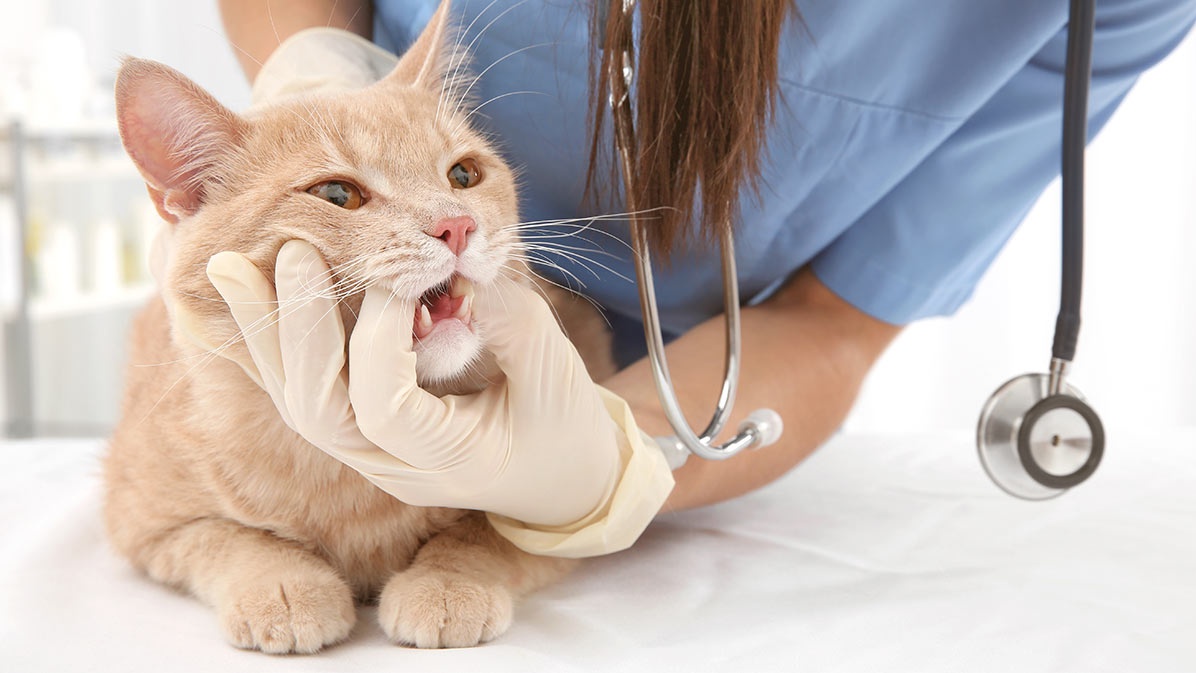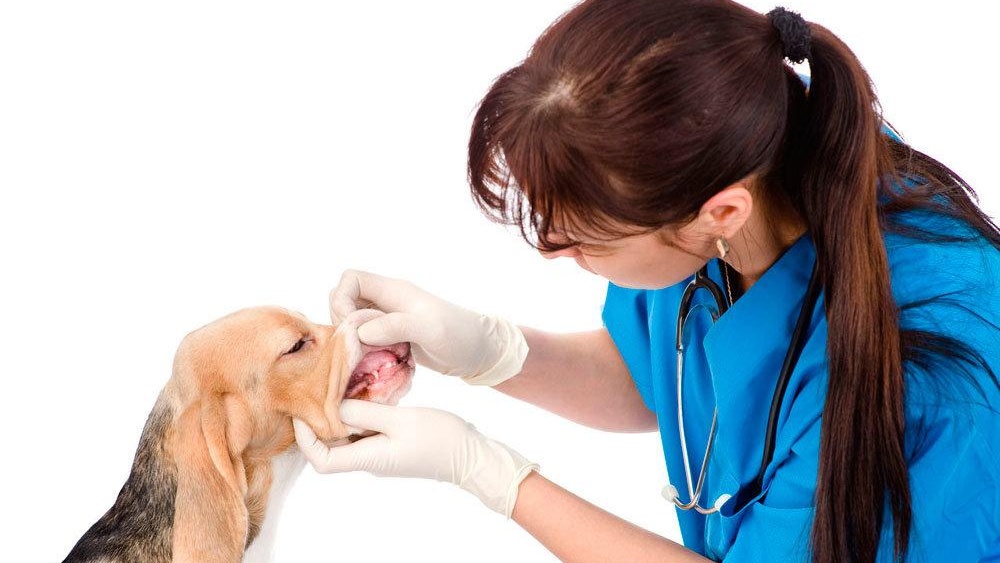[ad_1]
Although animals rarely show that they have toothache, they also need regular check-ups with the dentist.

What animals need a dentist?
Everyone who has teeth needs a dentist. As among people, among animals there are those who do not get out of the dentist and who do not have a single healthy tooth, and those who almost never go to the doctor. It depends on the genetic predisposition. Pedigree animals are more likely to have problems, including dental problems. But it is not necessary that everything will be bad for such a dog, and everything will be fine for a mongrel.
There are also individual and age characteristics. The older the animal, the more problems he has with his teeth. Pets live longer indoors than outdoors. Nature does not provide for dogs and cats to live for 15–20 years. Accordingly, with age, they begin to accumulate diseases.
How to understand that animals have a toothache?
If you go for check-ups, the doctor will tell you about it. It can be difficult to figure out if an animal has problems on its own. Often the owners say: “Well, he eats calmly — it means that his teeth do not hurt.” But the pain will become noticeable only in a neglected case, when the animal begins to refuse food altogether. It also happens that a dog needs to have a lot of teeth removed, but it still eats and does not show any discomfort. They hardly use their teeth when they eat, they have practically no chewing function. They need them for hunting.
If an animal lives on the street and gets food on its own, then without teeth it will die. But in apartments they do not need them for their intended purpose. Animals use their teeth when biting off a large piece of food, but at home they rarely or never do this.
What dental problems do pets have?
The diseases are basically the same as in humans, but the frequency of occurrence is different. For example, cats do not have caries, while dogs rarely do. Animals have a different shape, structure of the tooth and nutrition system.
What are ideal teeth in dogs and cats?
There is no concept of “perfect teeth” in veterinary medicine. For example, people care about how straight and white their teeth are, but animals don’t care. They do not know how to draw logical conclusions, and they have no concept of beauty. And this is where the controversy arises. Many owners treat pets as things, because according to the law, a pet is the property of a person, in which he can change whatever he wants. In my opinion, it is more correct to think about health and, first of all, pay attention to the presence of pathologies and the quality of life of the animal. If the pet’s teeth are not very even, but do not injure him, then they do not need to do anything. It is important to ensure that there are no inflammatory processes, plaque, stones, injuries.
If you think from the point of view of exhibitions, then the correct bite is important for animals there. Moreover, different breeds have their own characteristics. This is due to the fact that initially each dog performed certain functions and the correct structure of the teeth is very important for working qualities. If the pet has the wrong bite, then the experts of the exhibition will remove it from participation.
How are animals treated for teeth?
To do this well and efficiently, general anesthesia is required. If you are offered to treat your pet’s teeth in a different way, you need to run away from such specialists without looking back. Before performing dental surgery, it is important to undergo a cardiac examination, tests, and possibly an abdominal ultrasound. This is individual and depends on age and concomitant diseases.
Dogs and cats are cleaned, deposits are removed, teeth are removed and stitches are applied. Sometimes they put medications inside the holes of the extracted teeth, put all kinds of fillings. To save a broken tooth, different types of restoration are used, human materials are well suited to animals. Large dogs often get metal crowns. For them, aesthetics are not important, and this is the most durable material possible. These teeth look like iron. The installation of crowns is not the most common procedure, but if it is a service, guard or hunting dog, then the presence of teeth is important for it. Sometimes designs are made that fix fractures or dislocations of the jaw.
How often should you go to the dentist?
It is advisable to come for a checkup every six months or a year, especially with cats. They are very secretive and do not show that something hurts them. In fact, their behavior changes, but gradually, not in one day or a week, which makes it difficult for owners to discern health problems without a doctor. Then, when we treat teeth, people often notice that their cat is getting better, but the last six months have been bad. Therefore, cats need to be taken for preventive examinations (not only to the dentist), for ultrasound and tests. Prevention is easier than cure.
Animals are also given dental x‑rays under anesthesia. It is impossible without it, because the animal does not understand what kind of manipulations are taking place and is very stressed about this.

How to properly brush teeth for cats and dogs?
Brushing cats teeth is more difficult, because not everyone will allow this procedure. But this is especially important to do if the breed is prone to gingivostomatitis — Maine Coons, Orientals, Bengals, Abyssins, Bobtails.
Many dog owners brush their teeth once a week — it’s pointless. To do this with a preventive purpose should be once a day. Young animals without pathologies or large dogs can be less often, two to three times a week.
There are special toothpastes without fluoride, mint and anything that is harmful to animals. They are even sold with the taste of meat, liver or chicken. You need to brush your teeth only with these pastes, and you can use any brush that is convenient for the owner, but you should choose depending on the size of the animal. There are veterinary brushes — they are smaller than children’s, narrower and with a thin pointed tip, with long handles or in the form of fingertips.
Unfortunately, not all owners succeed teach your pets to regularly clean the oral cavity. For capricious and naughty animals, there are special brush toys for cleaning the oral cavity. They are made in the form of a special texture of thermoplastic rubber, with which bacterial plaque is well removed from the surface of the teeth, plus they have a pleasant refreshing smell. Such remedies are well suited and effective only in those animals that have not yet formed hard plaque, since, due to its presence in the pet, these remedies will no longer be useful.
It is good if a person accustoms a pet to this procedure from childhood: it is difficult to brush the teeth of a five-year-old spitz with periodontitis. Many give up quickly because the pet is spinning, spinning, or running away. If you do not brush your teeth, then there may not be a problem. It all depends on what kind of animal we are dealing with. But if you’ve adopted a Yorkshire Terrier, chances are you’ll be a client of a veterinary dentist soon enough without a cleaning.
[ad_2]

Добавить комментарий
Для отправки комментария вам необходимо авторизоваться.